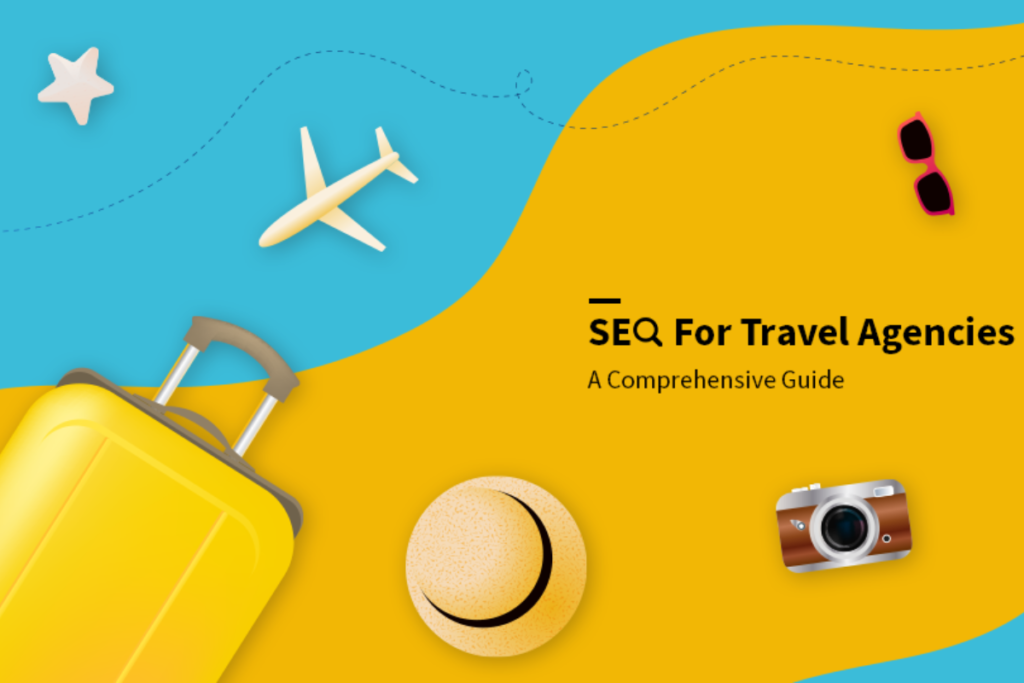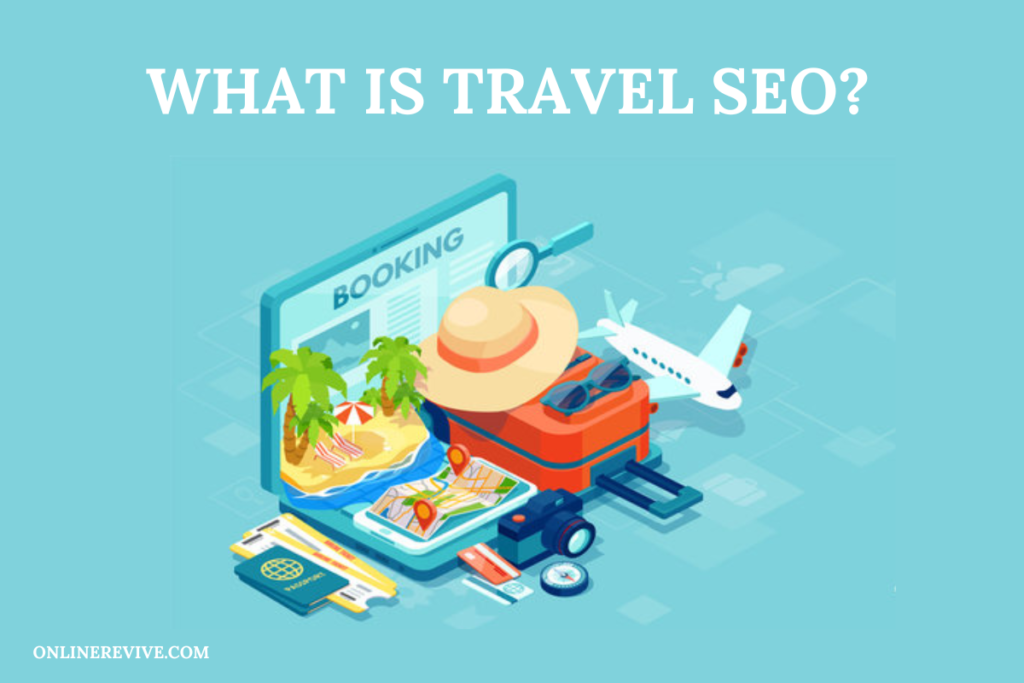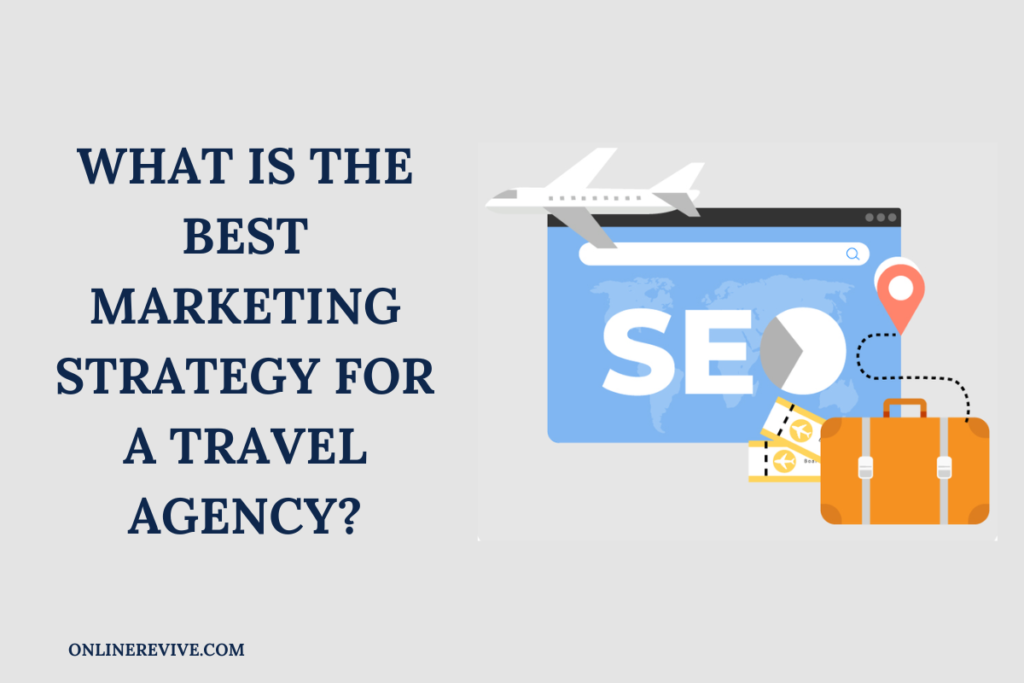How Can SEO For Travel Agency Improve Bookings?
In today’s digital age, travel agencies face fierce competition online. To stand out and attract more customers, travel agencies must leverage effective SEO (Search Engine Optimization) strategies. Online Revive, a leading digital marketing company, understands that SEO is a powerful tool that can significantly enhance a travel agency’s online visibility, leading to increased bookings. This comprehensive guide from Online Revive will explore how travel agencies can improve bookings through SEO by focusing on various critical aspects of SEO, including keyword research, on-page optimization, content creation, technical SEO, local SEO, backlink building, and monitoring.

Understanding SEO For Travel Agency
SEO is the process of optimizing your website to rank higher in search engine results pages (SERPs). For travel agencies, improving visibility on search engines is crucial to attracting potential clients and increasing bookings. To understand how travel agencies can improve bookings through SEO, it’s essential to grasp the fundamentals of SEO and its components.
SEO involves both on-page and off-page factors. On-page SEO refers to optimizing elements on your website, such as content, meta tags, and images. Off-page SEO includes activities that occur outside your website, such as building backlinks and social media engagement. By focusing on both aspects, travel agencies can improve their rankings and attract more visitors to their sites.
What Is Travel SEO?

Travel SEO refers to the process of optimizing a travel agency’s website, content, and online presence to rank higher in search engine results. This specialized form of SEO focuses on targeting specific keywords and phrases that potential customers use when searching for travel-related services, destinations, or information. By effectively implementing SEO for travel agency, businesses can increase their visibility, attract more organic traffic, and ultimately improve bookings.
When done correctly, SEO for travel agency & websites includes on-page optimization, such as keyword integration, meta tags, and high-quality content, as well as off-page tactics like backlink building and social media engagement. Travel SEO also involves optimizing the site for local searches, which is particularly important for agencies targeting specific regions or destinations. The overall goal is to ensure that your travel business appears at the top of search engine results when users look for travel-related services.
To improve travel agency business, agencies should continuously update their SEO strategies to adapt to changing search engine algorithms and consumer behavior. This involves staying updated with the latest SEO trends and best practices to maintain a competitive edge in the travel industry.
How Does SEO Improve Traffic?
SEO improves traffic by making your website more visible and accessible to users searching for relevant content or services. By optimizing your website for specific keywords and improving its overall search engine ranking, you can attract more organic traffic, which is often more valuable than paid traffic.
For example, using SEO keywords for travel agencies such as “best travel deals” or “luxury vacation packages” can help your site rank higher when users search for these terms. High rankings in search engine results lead to increased click-through rates, which in turn drives more visitors to your site.
Moreover, SEO for travel agency blogs plays a crucial role in driving traffic by attracting users interested in travel tips, destination guides, and personal travel experiences. By providing high-quality, engaging content that is optimized for relevant keywords, travel blogs can become valuable resources that consistently draw in new visitors.
Implementing strong SEO practices is also part of how to improve travel business as it ensures that your website remains competitive in search engine rankings. Higher visibility on search engines can lead to more inquiries, bookings, and ultimately, more revenue for your travel agency.
What is the Best Marketing Strategy for a Travel Agency?

The best marketing strategy for a travel agency combines a mix of SEO, content marketing, social media engagement, and search engine marketing in the travel industry. Each element plays a crucial role in attracting potential customers, building brand awareness, and driving conversions.
SEO and Content Marketing: Start by focusing on SEO for travel agency & websites to ensure that your agency’s site ranks high in search results. Create valuable content, such as travel guides, blogs, and destination overviews, that incorporates SEO keywords for travel agencies. This not only improves your site’s ranking but also provides useful information that can convert visitors into customers.
- Social Media Engagement: Utilize social media platforms to share your content, engage with your audience, and promote special offers. This is also an excellent way to enhance customer service and gather feedback on how to improve customer service in travel agencies.
- Email Marketing: Develop targeted email campaigns to keep potential customers informed about your latest offerings, travel tips, and promotions. Personalization is key here, as it can significantly improve engagement rates and encourage repeat business.
- Search Engine Marketing (SEM): In addition to SEO, invest in paid search campaigns to boost your visibility on search engines. SEM in the travel industry can be highly effective, especially when combined with a solid SEO foundation. Paid ads can target specific demographics and help you reach customers who are ready to book their next trip.
- Partnerships And Collaborations: Form strategic partnerships with other businesses in the travel and tourism industry. For instance, collaborating with hotels, airlines, or local tour operators can lead to mutual benefits and expanded customer reach.
Incorporating these strategies will help you improve travel agent business and ensure that your agency stays competitive. By continuously refining your approach and adapting to market changes, you can attract more clients, enhance customer satisfaction, and boost overall business performance.
Conclusion
In summary, SEO for travel agency is a powerful tool for those looking to improve bookings and stand out in the digital landscape. By focusing on keyword research, on-page optimization, content creation, technical SEO, local SEO, backlink building, and monitoring, travel agencies can enhance their online presence and attract more customers. Implementing these strategies will help travel agencies improve bookings through SEO, leading to increased visibility, higher traffic, and ultimately, more successful bookings. Embrace SEO as an ongoing process and continually refine your strategies to stay ahead in the competitive travel industry.
